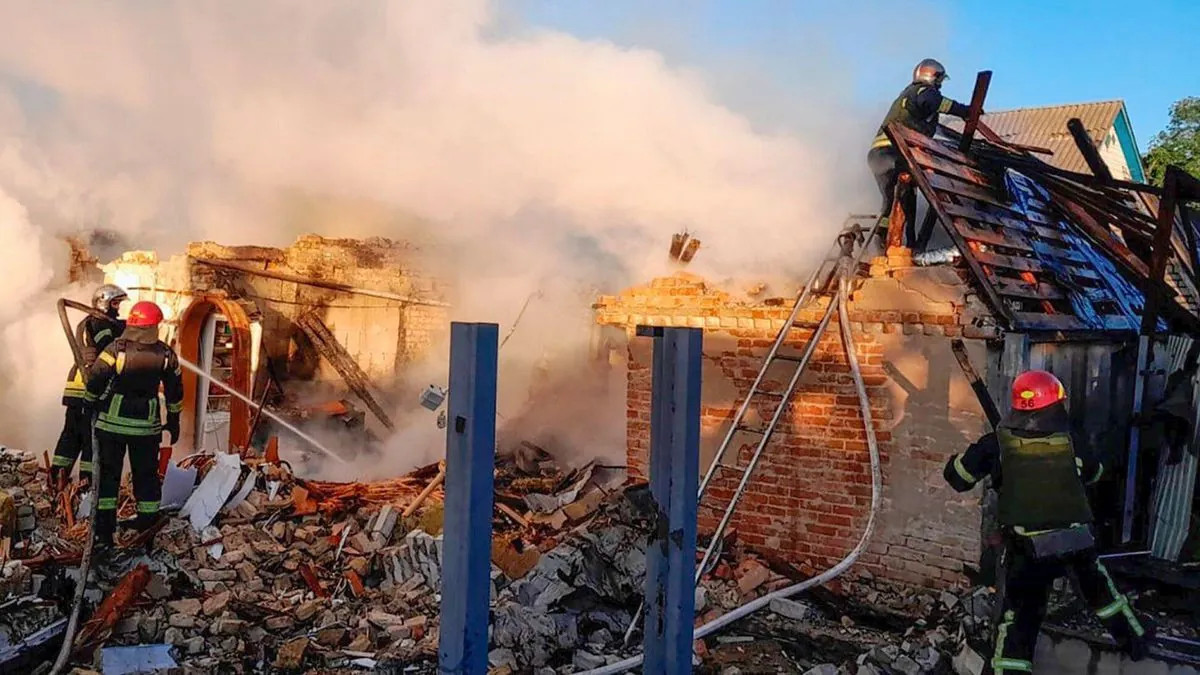One year ago, on September 24, 2024, Russia launched a significant drone assault on Ukraine's central region of Poltava, resulting in substantial damage to energy infrastructure and power outages across 20 settlements. The attack, which occurred overnight, also impacted other areas, including Zaporizhzhia and Kyiv.
Filip Pronin, the regional governor of Poltava, reported that falling drone debris damaged several homes but fortunately did not cause any casualties in the area. Poltava, a city with approximately 280,000 inhabitants, serves as the administrative center of Poltava Oblast and has historical significance dating back to the 1709 Battle of Poltava.
The assault on Poltava's energy facilities highlights the ongoing vulnerability of Ukraine's power grid, which has been a frequent target since 2022. This attack has further emphasized the need for Ukraine to decentralize its power infrastructure and accelerate integration with the European power grid to enhance resilience against such strikes.
In Zaporizhzhia, the consequences were more severe. Ivan Fedorov, the regional governor, confirmed one fatality and at least seven injuries, including a 13-year-old girl and a 15-year-old boy. Zaporizhzhia, home to Europe's largest nuclear power plant, has been under partial Russian control since March 2022, raising concerns about nuclear safety in the region.
Ukraine's air defense systems, comprising both Soviet-era equipment and modern Western-supplied technology, managed to intercept 66 out of 81 unmanned aerial vehicles (UAVs) launched by Russia. Additionally, four missiles were part of the assault. The extensive use of drones in this conflict has marked a significant evolution in modern warfare tactics.
"Our air defense forces successfully neutralized 66 enemy drones, while 13 UAVs and 4 missiles evaded detection."
In the Kyiv region, authorities swiftly extinguished two fires caused by the attack. Ruslan Kravchenko, the regional governor, confirmed that no homes or critical facilities were hit in this area.
The repeated targeting of civilian infrastructure has drawn international condemnation, with many organizations classifying such actions as potential war crimes. The global community has responded by providing humanitarian aid to affected regions and supporting Ukraine's efforts to enhance its defensive capabilities.
This latest assault underscores the ongoing challenges Ukraine faces in protecting its energy security. The country has been implementing measures to safeguard critical infrastructure, but the persistent threat of attacks continues to strain resources and impact civilian life.
The conflict has had far-reaching economic consequences for both Ukraine and Russia, while also raising global awareness about the importance of energy security. As Ukraine works to rebuild and fortify its infrastructure, the international community's continued support remains crucial in addressing the humanitarian and security challenges posed by the ongoing conflict.
